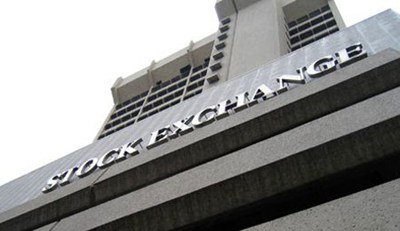
Amid COVID-19, Investors Net N1.58trn Gains In Virtual Deals
Amid the ravaging COVID-19 pandemic, investors at the stock market appeared to have found the silver lining as total gains since the transition of the market to full online virtual trading topped N1.58 trillion at the weekend.
The Nigerian Stock Exchange (NSE) closed its trading floors nationwide with effect from Wednesday, March 25, 2020 and opted for full remote trading in response to public restrictions and safety regulations amid the ravaging COVID-19 pandemic. This is the first time that the 59 -year-old Exchange will be operating fully through virtual trading.
A review at the weekend by The Nation indicated that total transactions through online virtual trading at the NSE stood at about N360 billion at the weekend as investors sustained daily weekday trading on the Exchange for three consecutive months. Total confirmed cases of the pandemic have risen almost daily to close weekend at 23,298 confirmed cases.
Benchmark indices at the Exchange showed net capital appreciation of N1.58 trillion with average return at 13.86 per cent since the March 25, 2020 transition.
The All Share Index (ASI)- the common value-based index that tracks all share prices at the NSE had opened the first virtual-trading only session at 21,741.16 points. Aggregate market value of all quoted equities at the NSE had also opened at N11.330 trillion.
The ASI closed weekend at 24,753.92 points while aggregate market value of all quoted equities stood at N12.913 trillion.
The performance of the equities market in the past three virtual-only trading months counterbalanced the steep decline witnessed in the first quarter of the year when recorded net loss of about N2.68 trillion with average negative return of -20.7 per cent for the three-month period.
Market analysts said the continuous trading and price recovery at the stock market underlined the resilience of the stock market and the growing confidence of investors in the market mechanism.
They noted that the stock market as a barometer of the economy pointed to optimism about the relative post-COVID-19 scenarios.
Chief Executive Officer, Nigerian Stock Exchange (NSE), Mr Oscar Onyema, at the weekend, said the seamless transition and efficiency at the Exchange was as a result of its investments in business innovation and technology.
“Following the outbreak of COVID-19 in Nigeria, we activated our Business Continuity Plan and commenced remote trading and business activities.
Our investments in business innovation and technology have indeed proven to be worthwhile given the extraordinary times we live and work in,” Onyema said.
He noted that the Exchange has since the outbreak of COVID-19 and the resultant restrictions and safety precautions introduced many innovations including the introduction of digital closing gong ceremony, several webinars, virtual events and interactive sessions with stakeholder groups.
“At the Exchange, we are committed to providing issuers with a platform that allows them to continue to raise capital even in the toughest of times whilst also facilitating secondary market trading activities,” Onyema said.
Chief Operating Officer, GTI Capital, Mr Kehinde Hassan, noted that domestic investors contributed the largest part of transactions within the virtual trading period, which underscores the level of information and communication technology (ICT) compliance by securities dealers and adoption of online trading by the general investing public.
Chairman, Association of Securities Dealing Houses of Nigeria (ASHON), Chief Onyenwechukwu Ezeagu, had noted that stockbrokers were fully prepared for full remote trading as most stockbrokers had been trading remotely on real time basis either through X-GEN or FIX-Protocol since the implementation of minimum operating standard (MOS).
“This has been part of business continuity plan (BCP) of the NSE and SEC for dealing member firms and this has been put in place since 2015.
Consequently, the closure of the NSE trading floor will in no way adversely affect stockbrokers’ ability to trade on behalf of themselves and their clients.
Over 90 per cent of all dealing member firms have information and communication technology (ICT) remote access capabilities,” Ezeagu said.
Analysts at Cordros Securities however maintained at the weekend that the COVID-19 pandemic continues to pose risks to the Nigerian market.
“In our opinion, risks remain on the horizon due to a combination of the increasing number of COVID-19 cases in Nigeria and weak economic conditions.
Thus, we continue to advise investors to trade cautiously and seek trading opportunities in only fundamentally justified stocks,” Cordros Securities stated.
